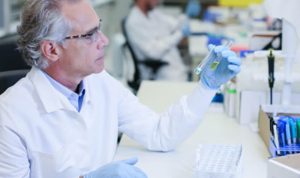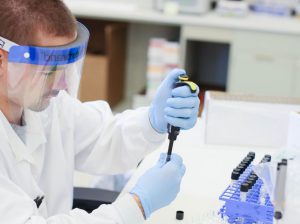 Question: What is Six Sigma?
Question: What is Six Sigma?
Six Sigma is defined by the Council for Six Sigma Certification as “a set of business tools, statistical theory, and quality control knowledge that helps improve your business procedures. A Six Sigma process is expected to be free of defects with no more than 3.4 defective defects per million opportunities (DPMO).” In many organizations, Six Sigma means a standard of quality near perfection. It champions total customer satisfaction. The Six Sigma methodology was introduced in 1986 by an engineer in Motorola and Jack Welch brought it greater fame in the 1990s when he put it at the core of GE’s business strategy and culture. Many industries used Six Sigma today.
At Quest Diagnostics, Six Sigma means that subject matter experts, armed with data and knowledge, work together in teams to identify defects and improve the quality of our processes and products. A defect, according to Six Sigma, is anything outside customer specifications. Our company has Black Belts (project managers) deployed in every Quest Diagnostics business unit trained lead Six Sigma improvement projects that touch areas such as our laboratory, Patient Service Centers, logistics, specimen processing, client services, billing, and information technology.
Furthermore, Six Sigma is integrated in The Quest Management System (QMS) which guides all of our employees to work using the same foundational values and behavioral norms. QMS prioritizes efforts according to what’s most important to our customers and what continually advances our operational efficiency.
We are committed to exceptional quality in drug testing. We embrace change, strive to solve problems and take corrective actions, listen to employee feedback and customer insights, and engage the hearts and minds of our workforce to achieve success. These same qualities mirror the fundamental practices of Six Sigma.
For more information about drug testing, visit our website.
 Your Privacy Choices
|
Privacy Notices
|
Terms
|
Language Assistance / Non-Discrimination Notice | Asistencia de Idiomas / Aviso de no Discriminación | 語言協助 / 不䈚視通知
Your Privacy Choices
|
Privacy Notices
|
Terms
|
Language Assistance / Non-Discrimination Notice | Asistencia de Idiomas / Aviso de no Discriminación | 語言協助 / 不䈚視通知



















Six Sigma is defined by the Council for Six Sigma Certification as “a set of business tools, statistical theory, and quality control knowledge that helps improve your business procedures. A Six Sigma process is expected to be free of defects with no more than 3.4 defective defects per million opportunities (DPMO).” In many organizations, Six Sigma means a standard of quality near perfection. It champions total customer satisfaction. The Six Sigma methodology was introduced in 1986 by an engineer in Motorola and Jack Welch brought it greater fame in the 1990s when he put it at the core of GE’s business strategy and culture. Many industries used Six Sigma today.
At Quest Diagnostics, Six Sigma means that subject matter experts, armed with data and knowledge, work together in teams to identify defects and improve the quality of our processes and products. A defect, according to Six Sigma, is anything outside customer specifications. Our company has Black Belts (project managers) deployed in every Quest Diagnostics business unit trained lead Six Sigma improvement projects that touch areas such as our laboratory, Patient Service Centers, logistics, specimen processing, client services, billing, and information technology.
Furthermore, Six Sigma is integrated in The Quest Management System (QMS) which guides all of our employees to work using the same foundational values and behavioral norms. QMS prioritizes efforts according to what’s most important to our customers and what continually advances our operational efficiency.
We are committed to exceptional quality in drug testing. We embrace change, strive to solve problems and take corrective actions, listen to employee feedback and customer insights, and engage the hearts and minds of our workforce to achieve success. These same qualities mirror the fundamental practices of Six Sigma.
For more information about drug testing, visit our website.